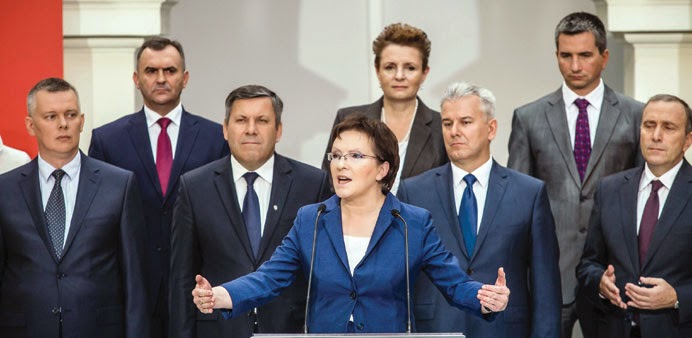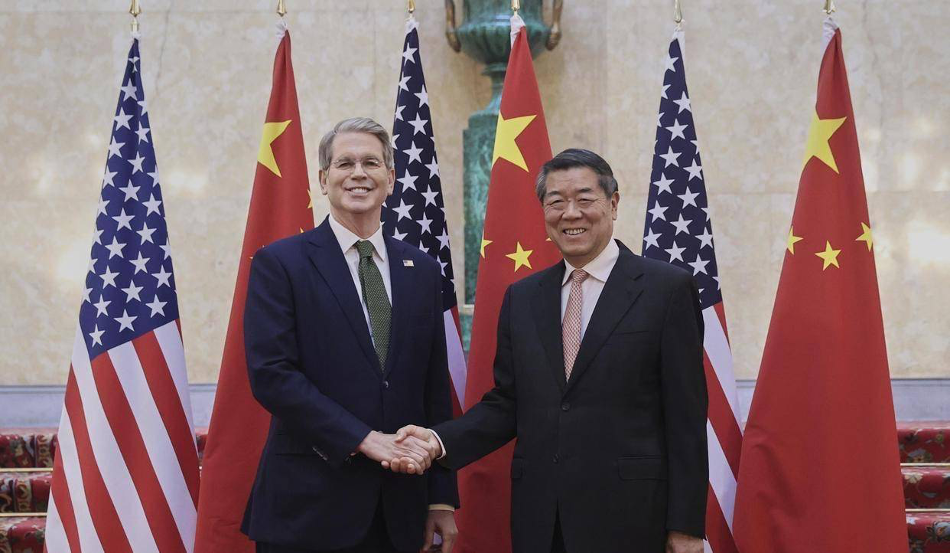Announcement of New Polish Government Hints at Less Active Foreign Policy
Announcement of New Polish Government Hints at Less Active Foreign Policy
Following the selection, this past August, of Polish Prime Minister Donald Tusk to head the European Council in Brussels, his named successor, Ewa Kopacz revealed the make-up of her new cabinet on Friday, September 19 (dziennik.pl, September 19). The new government, in many ways is supposed to represent a seamless continuation of the former one led by Tusk until his official resignation on September 11 to pursue the top leadership position in the European Union. As the new Prime Minister Kopacz told journalists, she will not be changing the number or structure of the cabinet or the individual ministries, and the majority of the ministers (12 out of 18) will continue in their previous roles. Nonetheless, her announced government—ceremonially sworn in by President Bronislaw Komorowski on Monday (gazetalubuska.pl, September 22)—included a few important shake-ups, which may presage a decline in Poland’s regional leadership role within Europe.
The most notable, though not unexpected (dziennik.pl, September 17; Gazeta Wyborcza, September 3), change has been the replacement of Foreign Minister Radoslaw “Radek” Sikorski with Grzegorz Schetyna. A former minister of interior in the Tusk government (2007–2009), Schetyna was forced to resign amid a domestic scandal that had come to be known as the “Gambling Affair” (“Afera hazardowa”). Once considered a top official in the ruling Civic Platform (Platforma Obywatelska—PO) and a close confidante of Donald Tusk, Schetyna had more recently been pushed to the margins of the party, apparently after showing too much political ambition during his brief stint as speaker of the lower house of parliament (marshal of the Sejm) between July 2010 and November 2011 (The Economist, September 19). As marshal of the Sejm, Schetyna also constitutionally served as interim president during the period between Poland’s last presidential election and Komorowski’s inauguration to the post. Some members of PO reportedly fear that he may try to use his new position in the government to punish those party factions that marginalized him over the past few years (Gazeta Wyborcza, September 22). Meanwhile, after seven years formulating Warsaw’s foreign policy as Poland’s top diplomat, the outspoken and internationally well-known Sikorski has been sent back to parliament to take over from Kopacz as speaker of the Sejm. Nonetheless, anticipating the question from journalists, Kopacz promised that there would be seamless continuation in the Ministry of Foreign Affairs between Sikorski and Schetyna.
A second major difference between the outgoing Tusk and incoming Kopacz governments has been the elevation of the defense minister post—still occupied by Tomasz Siemoniak—to a deputy prime minister position. Kopacz, noting that this was her first decision in forming the new cabinet, justified her rationale by stating, “I want him [Defense Minister Siemoniak] to be one of my closest partners, not only because today’s world requires a strong army, but principally because of his qualifications and strength of character” (Rzeczpospolita, September 19).
The new Polish government—and in particular, the replacement of Sikorski with Schetyna—has stirred up a great deal of controversy from multiple directions. Well-known journalist for The Economist and a long-time observer of Central-Eastern European affairs, Edward Lucas, has been particularly harsh in his evaluation of the new cabinet, calling it “v[ery] shaky” and unimpressive compared to what came before it (gazeta.pl, September 19). He criticized the nomination of Schetyna as foreign policy chief during such a difficult diplomatic and regional security environment for Poland, noting Schetyna’s lack of experience or, heretofore, interest in international affairs. And Lucas’ magazine, meanwhile, lamented the passing of the outspoken, polyglot Sikorski from the world stage, where he has become well known and respected among world leaders, only to be replaced by the mostly unknown Schetyna—who has very limited knowledge of any foreign languages (The Economist, September 19).
Nor has the reproach come exclusively from abroad. Days before the final cabinet’s announcement, even Schetyna himself told the press that he thought Sikorski should be allowed to finish out his term as foreign minister in light of current international challenges (dziennik.pl, September 17). And apparently, Schetyna’s own mother confirmed her son’s opinion (gazeta.pl, September 19).
The opposition in parliament has also openly criticized the new government, calling it little more than a reshuffling of PO politicians already seen before in previous Tusk-led cabinets, and whose make-up will only satisfy Civic Platform (gazeta.pl, September 19). Opposition politicians have also lambasted the naming of Sikorski as the next marshal of the Sejm, arguing that due to his fiery personality, his role as speaker will result only in arguments, political attacks and gridlock between the ruling majority and the minority parties (gazeta.pl, September 19; natemat.pl, September 12; tvp.info, September 15).
A number of theories exist as to why Sikorski was dismissed from his position at the head of the foreign ministry and sent to chair the lower house of parliament. On the one hand, Kopacz claimed that the new post was meant to be a promotion for Sikorski. And indeed, according to the Polish constitution, the chair of the Sejm—which is first in line to the presidency in an emergency—is one of the most powerful positions in the country’s political system. However, Jacek Gowin, a politician with the opposition Law and Justice (Prawo i Sprawiedliwosc—PiS) party, argues that Sikorski used his influence to extort the Sejm speaker post for himself as a platform from which to rebuild his political stature and simultaneously attack Prime Minister Kopacz in a struggle for control of PO (rmf24.pl, September 15). Alternatively, rumors from a source close to Tusk suggest that President Komorowski himself pressed Kopacz to keep Sikorski out of the new government due to his prominent role in the recent eavesdropping scandal (Gazeta Wyborcza, September 3). Considering that both Sikorski and former interior minister Bartlomiej Sienkiewicz (another politician whose controversial recorded conversations were released to the media) lost their ministerial positions on Friday, this may be an apt theory.
Domestic political intrigues aside, the make-up of the new government, and in particular the off-the-cuff responses to journalists by the new prime minister, suggest that Poland’s continuing foreign policy direction may not be quite as unbending as Kopacz had promised. Of course, Schetyna’s relative lack of foreign policy experience bears watching. But the struggling government in Kyiv likely took note of Kopacz’s prosaic answer to a journalist’s question about whether Warsaw would be assisting Ukraine with arms sales or helping in a multi-national coalition against the Islamic State. She replied that the country should react to outside threats like a “rational Polish woman,” who responds to a threatening individual she meets in the street by turning around, going home, locking the doors and minding after her children. “Our country, our home and our children are the most important,” Kopacz proclaimed. She added that Warsaw should not take a position counter to the rest of the European Union, but should follow the consensus, suggesting both that her government would not be taking stances counter to the interests of the West, but at the same time be unlikely to take a leading role in formulating policy toward Russia or the ongoing crisis in Ukraine (TVN24, September 19).
Granted, it may be too early to pass judgment on a government several days old. But signs are already apparent that Prime Minister Kopacz’s government may possibly adopt a more inward-looking foreign policy compared to the robust, European-directed diplomacy that was built up by Sikorski and Tusk over the last seven years.



